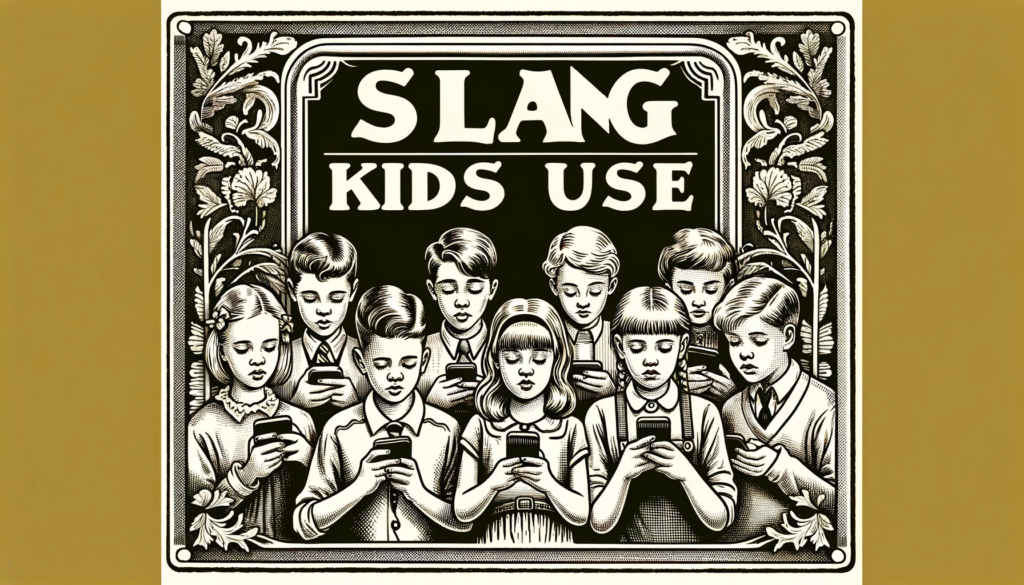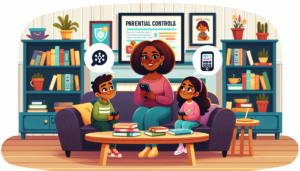What You Should Know | Use Cases and Examples |
“Friends with Benefits” – Refers to a casual, non-committed sexual relationship between friends. | |
FWB in Teen Texting | 1. Texting a friend: “Hey, do you want to be FWB?” |
2. Discussing relationships: “I heard they’re FWB now.” | |
Teen Texting Example 1 | Scenario: Two close friends experiment with a physical connection without emotional commitment. |
Example: Jane and Mark decided to try being FWB to explore their feelings. | |
Teen Texting Example 2 | Scenario: Teens may use FWB as a way to avoid the complexities of traditional dating. |
Example: Sarah and Alex prefer FWB to traditional relationships as it’s less stressful. | |
Teen Texting Example 3 | Scenario: Some teens use FWB as a means of maintaining a close bond with a friend while enjoying intimacy. |
Example: Chris and Lisa remain good friends while being FWB partners. | |
Risks and Concerns | Teens should be aware of potential emotional consequences and ensure consent and safe practices. |
Parental Control | Use Safe Lagoon’s monitoring features to track teen’s messaging for discussions related to FWB. |
Friends with benefits: What does it mean?
“Friends with Benefits” is a common term used in today’s modern dating world to refer to a non-traditional type of relationship.
Essentially, this refers to two people who are friends but also engage in sexual activity, without the expectations and commitments typically associated with a conventional romantic relationship.
The underlying assumption is that the parties involved can enjoy the physical benefits of a relationship while maintaining the casual status of their friendship.
The idea is to take away the complexities and responsibilities of a serious relationship, such as exclusivity, emotional intimacy, and long-term commitment, but still revel in the benefits, notably, sexual intimacy.
While it can appear advantageous for those who prioritize flexibility in their relationships, it often generates confusion and emotional turmoil as distinguishing between a romantic relationship and a friendship can be challenging.
At times, one party can become more emotionally invested, potentially leading to unrequited feelings and damaged friendships. In theory, the friends with benefits arrangement allows for a laid-back, commitment-free relationship, but in reality, it is far more complicated.
It is crucial, therefore, for those considering such an arrangement to communicate openly and honestly about their expectations to avoid any potential mismatch in feelings or misunderstandings.
Everyone involved should be fully aware of what they are signing up for and be willing to take on the nuances and challenges that come along with a friends with benefits relationship.
Safe Lagoon stands as the digital guardian for over a million families.
It’s not just a tool; it’s peace of mind, ensuring kids’ screen time is both safe and balanced.
Simplicity meets security.
How to Identify if your child is using the FWB slang word
In the age of technology and social networking, slang words have become an intricate part of our lives, influencing the way we communicate.
Your child might use the term ‘FWB’ among others, which implies ‘Friends With Benefits.’
If you suspect your child might be using the slang term ‘FWB,’ there are several ways you can verify.
Monitor their social media platforms, chats, and text messages, but remember to respect their privacy. This is easily done using Safe Lagoon AI monitoring.
Instances of ‘FWB’ in their texts might mean they’re aware or possibly indulged in such a relationship.
Also, you may hear them use it in their conversations with friends or siblings.
To get more insight, gently approach the issue with them.
If they are using the slang, consider it an opportunity for open dialogue about relationships and their complexity.
It’s important to address issues like safe sex, respect for oneself, and others, the emotional consequences of casual relationships.
Also, remember to clarify that it’s okay and healthy to set boundaries.
Your prime goal should be to ensure they navigate their personal lives responsibly.
Where does FWB come from?
The term FWB, an abbreviation for ‘Friends With Benefits,’ is believed to have originated in the mid to late 20th century with the liberalization of societal attitudes towards relationships and sexuality.
Often attributed to the rise of casual dating and non-traditional relationships, the exact etymology of the term remains unclear.
Some sources suggest that it emerged in popular culture through films and television series that portrayed casual sexual relationships, while others believe it came from internet jargon as online social connections grew in the 1990s.
The term is colloquially used to describe a relationship between two people who are friends and also have a sexual relationship without a commitment for a romantic relationship.
This arrangement is often presented as a solution to the complexities and emotional implications that traditional relationships can have.
Despite its popularity, the concept of ‘Friends With Benefits’ generates intense debate over its potential impact on emotional health and relationship stability.
Regardless of its origins, the term FWB has become widely recognized and adopted in the modern lexicon.
Understanding the cultural context in which it was created— and what it represents— can provide significant insights into shifting social attitudes towards relationships and sexual agency.
It can also help us to navigate evolving conversations about consent, commitment, and healthy relationship dynamics in the contemporary world.
FWB : How to talk with your kid about slang
As a parent, you constantly navigate the road of helping your child understand various aspects of life.
One area that poses a unique challenge is the ever-evolving plethora of slang.
Recently, a popular term amongst youth is “FWB,” which stands for “Friends with Benefits.”
Approach the conversation about this term with an open mind, understanding that it is crucial to create a safe space for your child to freely communicate with you.
Begin by gently asking your kid if they are aware of the term “FWB,” maintaining a non-judgmental demeanor.
This step is vital because it gauges your kids’ knowledge, their understanding of the term, and foundation for the discussion you plan to have.
Following this, provide a sensitive and age-appropriate explanation of the term.
The phrase typically refers to a relationship where friends engage in intimate activities without a commitment to a traditional romantic relationship.
Express that while these relationships may seem fun and carefree, they can sometimes lead to emotional distress and confusion, especially when one party starts developing romantic feelings.
Emphasize the importance of respect and consent in any relationship.
Ultimately, sharing your informed opinions and values about relationships can guide your child to make wise decisions in their interactions.
Remember, it’s okay not to have all the answers.
What’s paramount is that your child feels comfortable asking you questions and trusts you with their concerns.
Your willingness to discuss slang like “FWB” with them shows your commitment to understanding their world, providing a safe zone, and imparting valuable life lessons to them.
Who uses FWB?
This type of arrangement is variably used by different age groups and social circles. It’s particularly popular amongst young adults and those in their early twenties, where the focus is more on exploration and less on long-term relationships.
At the same time, it’s not unusual to find older, mature adults who prefer FWB arrangements due to various individual reasons, such as an aversion to commitment, a desire for variety, or the pursuit of personal freedom and flexibility.
In terms of demographics, FWB is used by people across various orientations and cultural backgrounds making it a fairly universal concept.
FAQ
FWB in Snapchat stands for “Friends With Benefits.”
This acronym is utilized to refer to a relationship in which two individuals who are friends engage in intimate or sexual activities without committing to a formal romantic relationship.
In other words, they have all the benefits of a romantic relationship without the responsibilities and commitments that typically come with it.
It is important to note that this term is not exclusive to Snapchat and is widely used across various social media and digital platforms.
However, this term may not always refer to a physical relationship and can also mean close friends who share a lot of benefits with each other, such as offering moral support, advice, andWhat does FWB mean on Tik Tok? companionship.
Users should be careful about misinterpreting or misusing this term, as it carries certain implications.
On TikTok, FWB stands for “Friends With Benefits”.
This acronym is commonly used on social media platforms to refer to a relationship where two friends also have a casual sexual relationship, but without the commitment that traditionally comes with dating or romantic relationships.
The term is used in a variety of content on TikTok, often in humorous or provocative ways.
Users may use it in their captions, comments, or even in the content of their videos themselves.
However, it’s important to note that context plays a significant role in figuring out the exact meaning of “FWB”.
As with many internet acronyms, the meaning can vary depending on the situation or the specific social group using it.
Therefore, users need to be mindful of how and when they are using this term.
People often seek friendships with benefits for a variety of reasons.
One of the most common reasons is the desire for sexual intimacy without the commitment and emotional turmoil often associated with romantic relationships.
Such arrangements allow for physical connection, while leaving emotional vulnerability out of the dynamics.
It provides a space that is void of expectations like reciprocated love, future planning, or as a stepping stone to a more formal, socially-recognized relationship such as marriage.
For some, it offers a way to experiment and explore one’s sexual preferences and needs in a low-pressure environment, which can contribute to higher comfort and understanding of oneself.
Additionally, it allows for a certain degree of independence, both psychologically and practically; one can enjoy the benefits of a relationship without giving up their autonomy.
However, it is important to note that while this form of connection is attractive to some, it requires a mutual understanding and respect from both parties involved to avoid potential emotional harm.
A ‘friends with benefits’ relationship is different from dating in several ways.
Firstly, this type of association usually involves two friends who engage in physical intimacy without any committed romantic feelings towards each other.
It operates on a no-strings-attached basis and typically doesn’t progress into a more serious, emotional attachment.
Dating, on the other hand, tends to be an exploratory phase where people form a romantic connection with the aim of potentially establishing a long-term commitment or relationship.
Dating often involves feelings of affection, emotional investment, exclusivity, and a sense of future planning. Both arrangements can have their own complexities, cons, and pros.
However, the defining difference rests in the nature and depth of emotional commitment, expectations, and the essence of the relationship between the parties involved.





